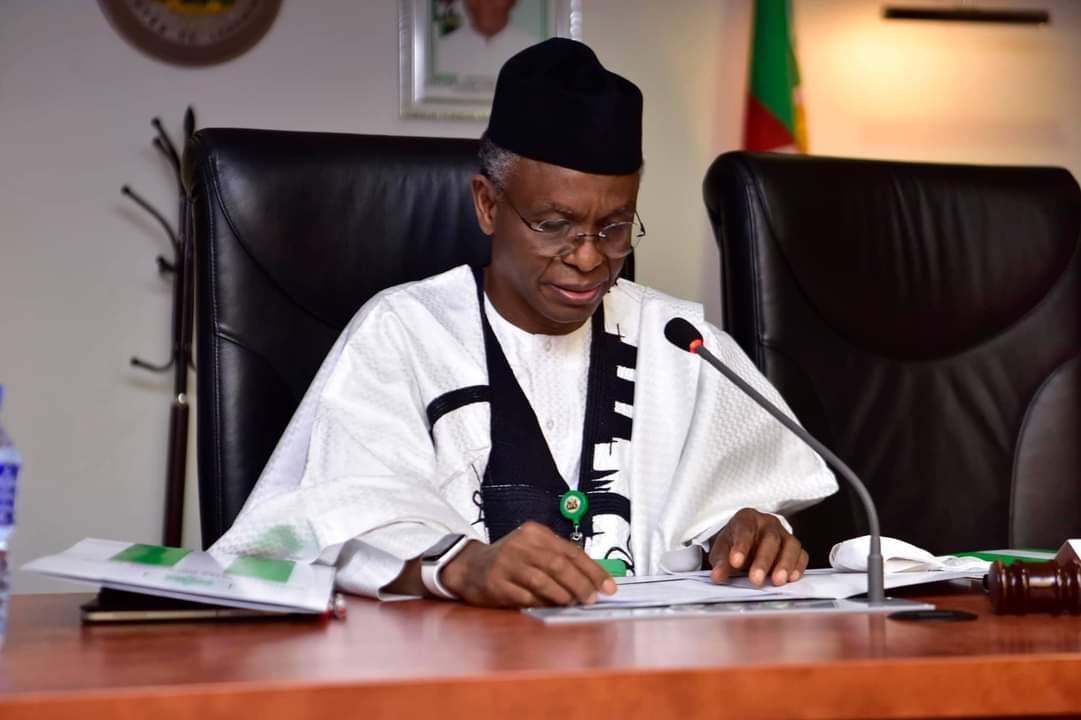The recent controversy involving Malam Nasir El-Rufai, the Executive Governor of Kaduna State, is one in a series of many that add to the enigmatic character of the governor. His political career has been full of what a fellow writer, Aliyu Sulaiman, recently described as “tough, brutal, brave and suicidal decisions”. El-Rufai’s list of bold but controversial decisions and policies are numerous whether in his capacity as the Minister of the Federal Capital Territory or as the elected governor of Kaduna State, the position he currently occupies.
El-Rufai’s decisions and policies may appear to some people as fearless, bold and necessary, particularly in the current Nigerian political climate that has been characterised by all sorts of misdoings. To many others, he comes across as rigid, cruel, unsympathetic and compassionless to the plight of the ordinary masses. Whether one belongs to the former or the latter, it is fair to say that Malam El Rufai undoubtedly possesses obstinacy and strong political will to make decisions or policies that are unpopular and possibly damaging to his own political career. This could be seen in his infamous demolishing of houses or even the recent lay-off of public workers which I will discuss later.
- Kaduna inaugurates c’ttee to reform Sangaya, almajiri schools
- No security service can fight insurgency, banditry alone — COAS
Before passing any judgment on El-Rufai’s controversies and their possible consequences to his political career, I should give a short political context to serve as a framework for understanding. Nigerian State and its various layers of government are broad in scope but weak in capacity. They are shamefully ineffective but take on an ambitious range of activities that they fail to perform well. In other words, they try to do so many things ranging from what Francis Fukuyama called in State Building “necessary and important” to what are just “desirable and optional”. For instance, provision of pure public goods such as defense, law and order, public health, management of the macroeconomy, improvement of equity by protecting the poor etc. are all necessary and important. However, Nigeria’s governments’ performance in these areas is so criminally poor. Public security is arguably at its worst ever state and poverty is reigning supreme due to the governments’ failure and the lack of capacity to provide a conducive environment where businesses can thrive.
It is in the context described above that we should try to make sense of the recent tussle between El-Rufai and the people who gave him the mandate. It is by looking at the government’s ability/failure to provide essential public goods such as security, public health and conducive environment for businesses to thrive that would give validity or otherwise to the governor’s most recent decision to fire thousands of public servants. My point here is the decision of El Rufai’s government to lay off public servants under the state may be necessary and perhaps should be done under the right condition.
I personally believe that Nigeria’s public sector is bloated and grossly inefficient. However, efficiency should not be pursued at the expense of social justice. With a thriving private sector and a conducive environment for small and medium size businesses, governments don’t have to disengage a massive number of people and if they do, there will be alternative opportunities in the private sector to wither the situation. Ordinary masses are therefore rightfully outraged by El-Rufai’s so-called reforms given the social class they target. Supposed these reforms start with the fat wages and allowances of the political class, he would likely attract a sizable amount of popular support instead of condemnation and outrage. As Acemoglu puts it, “You should apply double caution when it comes to policies which will strengthen already powerful groups”.
Issuing a threat to lay off employees who join Nigerian Labour Congress (NLC) strike and putting a bounty on the union’s leaders is despicable, undemocratic and politically damaging to his own career. It is a well-established fact that trade unions are an important pillar of a democratic state. Their presence is crucial in counterweighing the elites and business lobbying. El-Rufai has no option but to negotiate with the union rather than resorting to intimidation and threat. His handling of issues often comes across as dictatorial and he obviously lacks the political flair to sell a reform.
El-Rufai possesses some desirable leadership qualities and may be a good technocrat but is undoubtedly a poor politician. One can see the validity of Ruchir Sharma’s argument that, “Technocrats rarely succeed in the top job” when given the opportunity and that the best way for them to be successful is to serve under an authoritarian regime that commands rather than rallies popular support. The former European Commission President Jean-Claude Juncker’s remark is very relevant here in which he stated that, “We all know what to do, we just don’t know how to get re-elected after we have done it”. El-Rufai is a career politician who, although will not be seeking re-election back to the office he currently occupies, is likely to pursue other political positions in future.
The last decade has seen the rise of technocrats to top political positions in various countries throughout the world. The likes of Italy’s Mario Marti, Greece’s Lucas Papademos, Czech’s Jan Fischer are all examples of the limit of technocracy and why many technocrats, like El-Rufai, didn’t succeed in their political assignments. The reason being, as argued by Chrystia Freeland, a columnist in the New York Times, that a policy can be sensible in theory but lead to failure in practice because of its unintended political consequences.
Abubakar is with the Institute of Malaysian & International Studies (IKMAS), National University, Malaysia

 Join Daily Trust WhatsApp Community For Quick Access To News and Happenings Around You.
Join Daily Trust WhatsApp Community For Quick Access To News and Happenings Around You.


